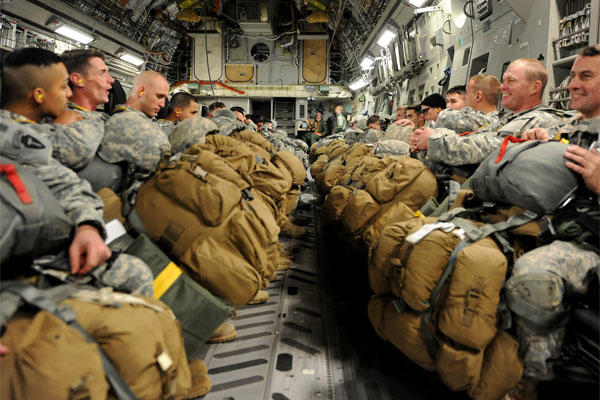U.S. Army generals told lawmakers Wednesday that besides needing more soldiers, a shortage of missiles and the federal hiring freeze create readiness headaches.
Senior leaders responsible for Army operations, plans and training, logistics and installation management testified at a March 8 hearing before the House Armed Services Committee's Readiness Subcommittee.
The issue has been a key concern and the reason behind proposed funding increases in the upcoming fiscal 2018 defense budget cycle. President Donald Trump has pledged to boost defense spending by $54 billion.
The Army is on track to grow the active, National Guard and Reserve force to more than 1 million soldiers, including an active force of 540,000.
If the service receives more funding, the first priority is to "fill gaps in our current formations to prevent the development of a hollow force," said Lt. Gen. Joseph Anderson, deputy chief of staff for Army G-3/5/7.
But one concern that worries Army officials is a shortage of "preferred munitions" for key weapons systems such as the Patriot, Terminal High Altitude Area Defense, or THAAD, and Hellfire missiles as well as precision guidance kits for Excalibur 155mm artillery rounds, according to Lt. Gen. Aundre Piggee, deputy chief of staff for Army G-4.
"Today I think we have adequate munitions for our known requirements, however if we had to surge if we had a contingency operation and there continue to be emerging threats which we see around the world, I am very concerned with our current stocks of munitions," Pigee said.
Rep. Madeleine Bordallo, a Democrat from Guam, said she wanted to know how the Army is being affected by the federal hiring freeze the Trump Administration ordered about 45 days ago.
Anderson said the hiring freeze has forced the Army to use soldiers to run ranges and stand guard at the front gates of bases instead of using civilian contractors to perform these missions.
"From my foxhole, all things readiness; going to war capabilities, from force protection to training to running ranges -- that has been the impact," Anderson said. "It has required more borrowed military manpower to compensate on installations, to run those types of facilities, which are the same soldiers which should actually be going through the training."
If it's a security or readiness issue, the secretary of the Army has the ability to sign waivers to allow the hiring process to continue, but "that has been the backlash of the hiring freeze from an operational perspective."
Lt. Gen. Gwendolyn Bingham, assistant chief of staff for Installation Management, said that "one of the biggest hurts with the hiring freeze has to do with our child development centers."
"Currently we have received over 5,000 exemptions to the hiring freeze," Bingham said. "Where we find ourselves is having to in some places diminish our part-time child development services."
No child development centers have closed but, "the vetting process along with the background checks and the security clearances that are required" take longer to complete so there will be a lag time before we can bring those new persons on board."
-- Matthew Cox can be reached at matthew.cox@military.com.






























